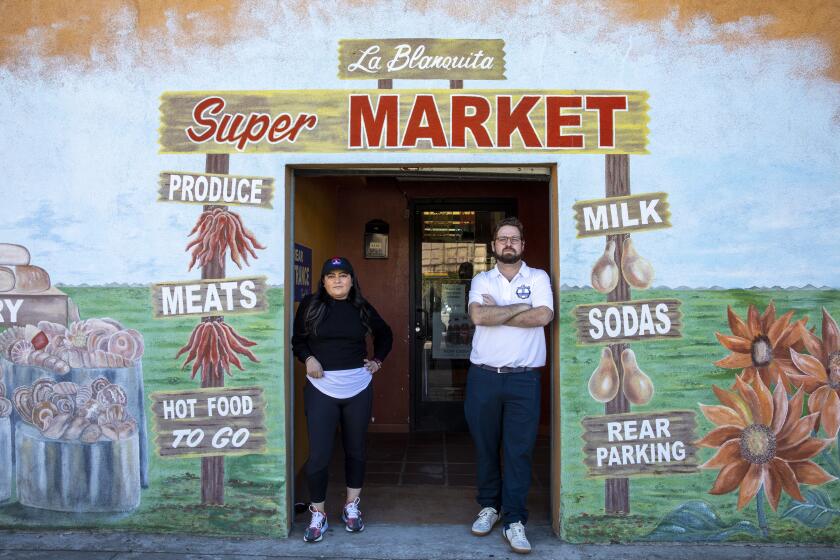Column: Pioneering taqueria weathers rash of break-ins: ‘You feel helpless, useless’
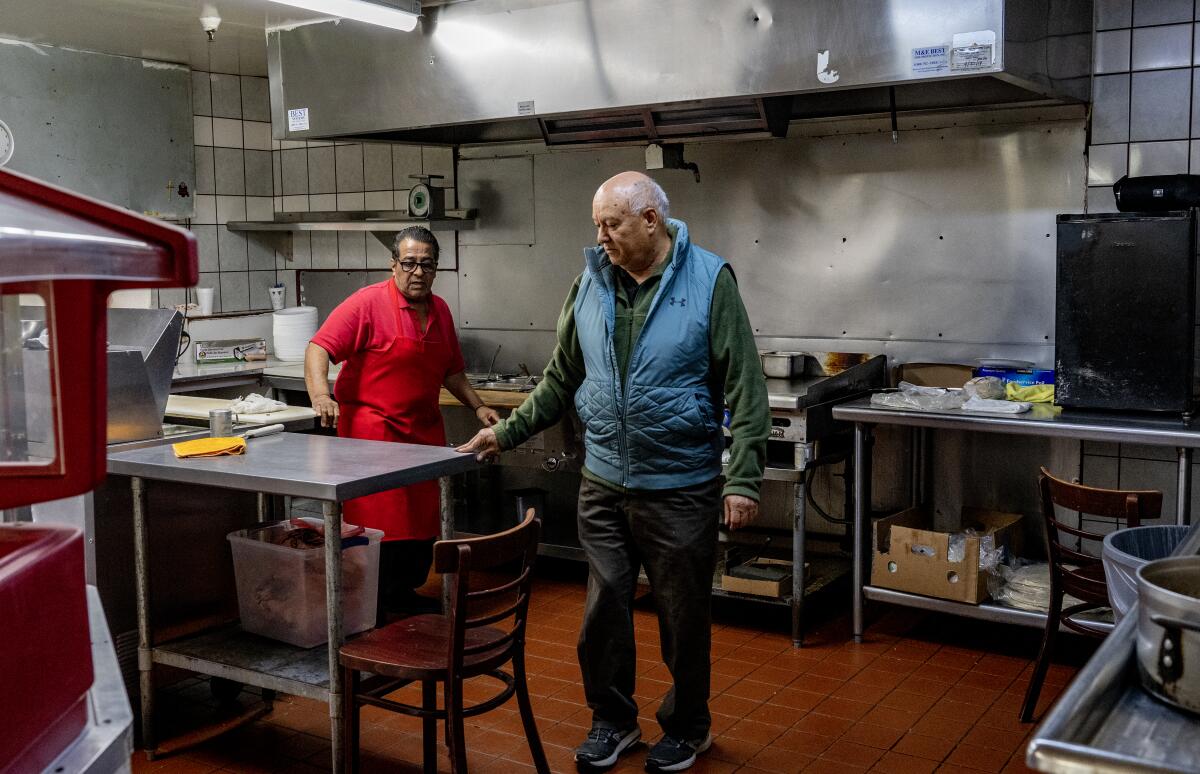
- Share via
When Samuel Solis opened Taco Boy in Anaheim in 1985, my hometown was a taco desert.
Mexican food in Anaheim back then was Cal-Mex combo plates and fast-food hard-shell tacos. To get something as simple as carne asada on a warm corn tortilla dressed with cilantro and onion, my father usually took us to the King Taco off Third Street and Ford Boulevard in East Los Angeles, or Taqueria de Anda in nearby Fullerton if we were really desperate.
Solis had worked in taquerias in L.A. County since arriving in the U.S. as a 21-year-old in the late 1970s. After a stint at multiple King Tacos, followed by a taco truck in downtown L.A. and a restaurant in Huntington Park, he acquired a former tortilleria near Anaheim City Hall. The street housed a bunch of bars and the original Northgate Gonzalez market, right next to barrios.
“Here was my raza from Guanajuato,” said Solis, now 66, referring to the Mexican state where he was born. His son, Samuel Jr., sat next to him as they waited for the lunch rush at their small, sparsely decorated spot. “But there also wasn’t a lot of competition back then. We did good from the start.”
“Families would go to Northgate, then come here,” Samuel Jr. added. He remembers early morning trips to L.A. with his dad for produce and tortillas, and napping on 50-pound bags of beans.
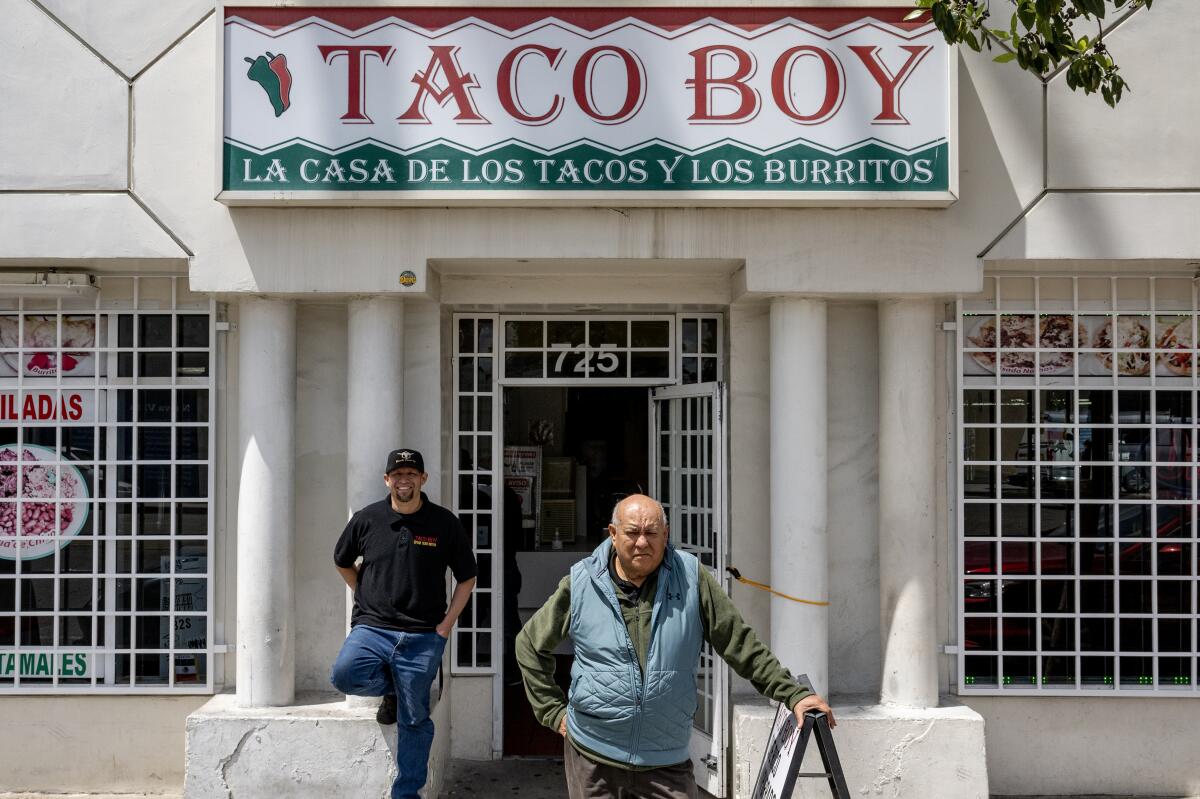
“At first, it’s like a prison,” his father added, speaking over the chintzy grupero music that blared from an electronic jukebox. “You have to be here seven days a week, 15 hours a day. Eventually, it gets easier.”
Taco Boy quickly became an Anaheim institution. With a partner, Solis was able to buy the gleaming white building that houses his restaurant and three other businesses. Another Taco Boy opened in Anaheim, run by Samuel Jr. and his uncle. Samuel Sr. earned a reputation as a kindhearted owner, the type that gave out free bean-and-cheese burritos to those who needed a meal and looked the other way if homeless people bathed in his restrooms.
My family and friends haunted the place for years. I stop in every once in awhile, not just to conjure up Proustian memories but because the no-frills menu — tacos, burritos, sopes, quesadillas, with menudo on Sundays — is still delicious.
“The main word here,” said the 40-year-old Samuel Jr., “is history.”
Samuel Sr. should be in the autumn of his life. He officially retired this year while remaining Taco Boy’s owner. But when I sat down with the two Samuels recently, they looked beleaguered.
It’s been a rough couple of years. Lorenzo Camacho, the uncle of Samuel Sr.’s wife and his right-hand man, died of COVID-19 at the end of 2020; a large photo of him hangs near the cash register. The pandemic forced the family to cut back hours. Taquerias now cover Anaheim, and rival taco joints stand just blocks away.
Now, Taco Boy has become victim to the rash of burglaries afflicting restaurants across Southern California that seem to be getting more and more brazen.
Cash and several significant and irreplaceable items belonging to the store’s late founder were taken in the break-in of La Blanquita in East Los Angeles.
The Tex-Mex chain HomeState suffered so many break-ins at their Sherman Oaks location that they announced in February that they would no longer accept cash. In March, thieves hit seven eateries in Rancho Santa Margarita in half an hour. Last week, 10 Glendale restaurants saw burglaries in just one Saturday morning. This week, two gun-wielding men held up Lucy’s Drive-In in Mid-City — the first time that my favorite place in Southern California for a chile relleno burrito had experienced anything like this.
Samuel Sr. said his business had suffered just one robbery before last fall. Since then, his two locations have weathered seven break-ins, including two in five days last month. The last time, the register at the original one was left open and empty, as if to let anyone who broke in know there was nothing left to take. Thieves still took off with a card reader and unsuccessfully tried to draw $10,000 from the restaurant’s account.
“This is what I do now,” he quietly said. Solis pulled up an app on his cellphone. It showed live footage from the 14 security cameras at his Taco Boys. “I can’t even sleep right now because I’m worried.”
He then pulled up footage that showed a man prying open a cash register at the original location some months ago. The front and bottom glass panes of the front door were smashed in.
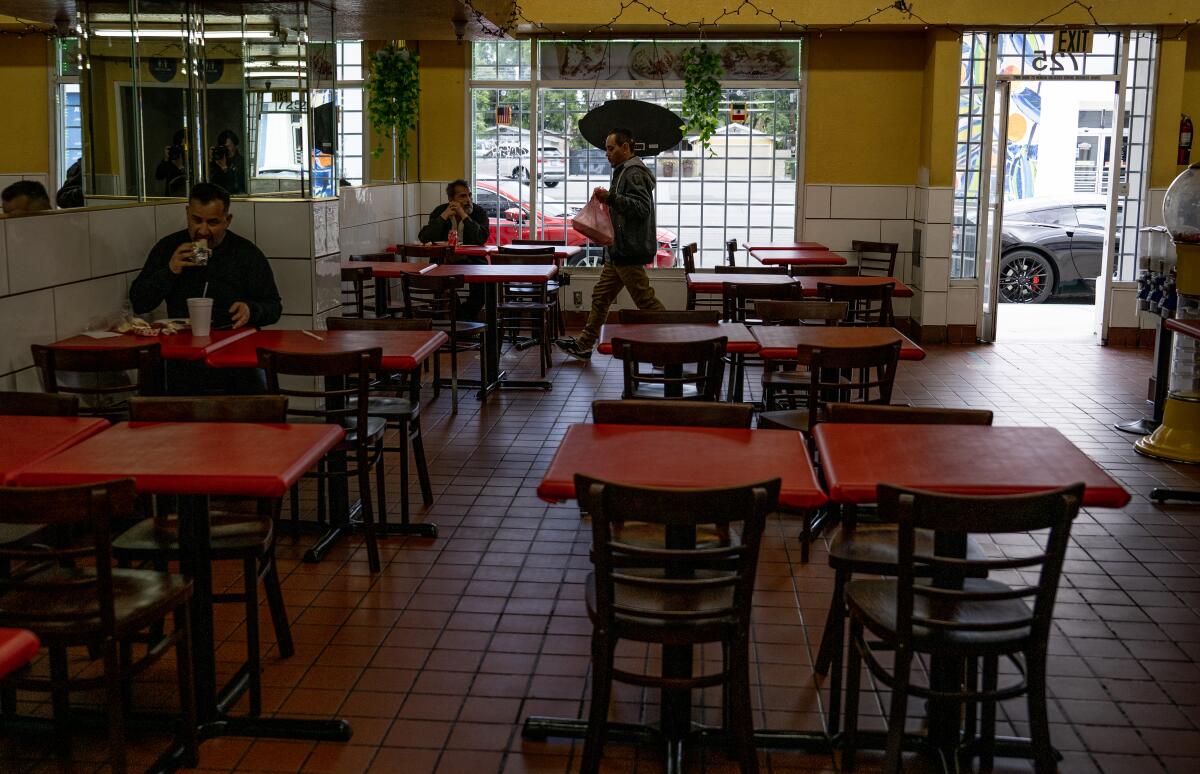
“There was $100 in there. They left $40 in quarters, so they took $60.”
Solis paused. “The machine cost $2,000. It was destroyed.”
I tried to look away, but Solis urged me to keep watching. “Look, he’s going for the sodas!” he said with a bitter laugh. “He took three Cokes.”
Samuel Jr. looked on with a grimace. “It’s frustrating. You feel helpless, useless. They walk away with money, and we walk away with an insurance claim.”
“Not even,” his father responded. “The damage we get doesn’t even reach our deductible, so we have to pay out of pocket.”
The family has filed police reports, but their cases remain outstanding. Samuel Sr. thinks Anaheim should beef up security in the neighborhood.
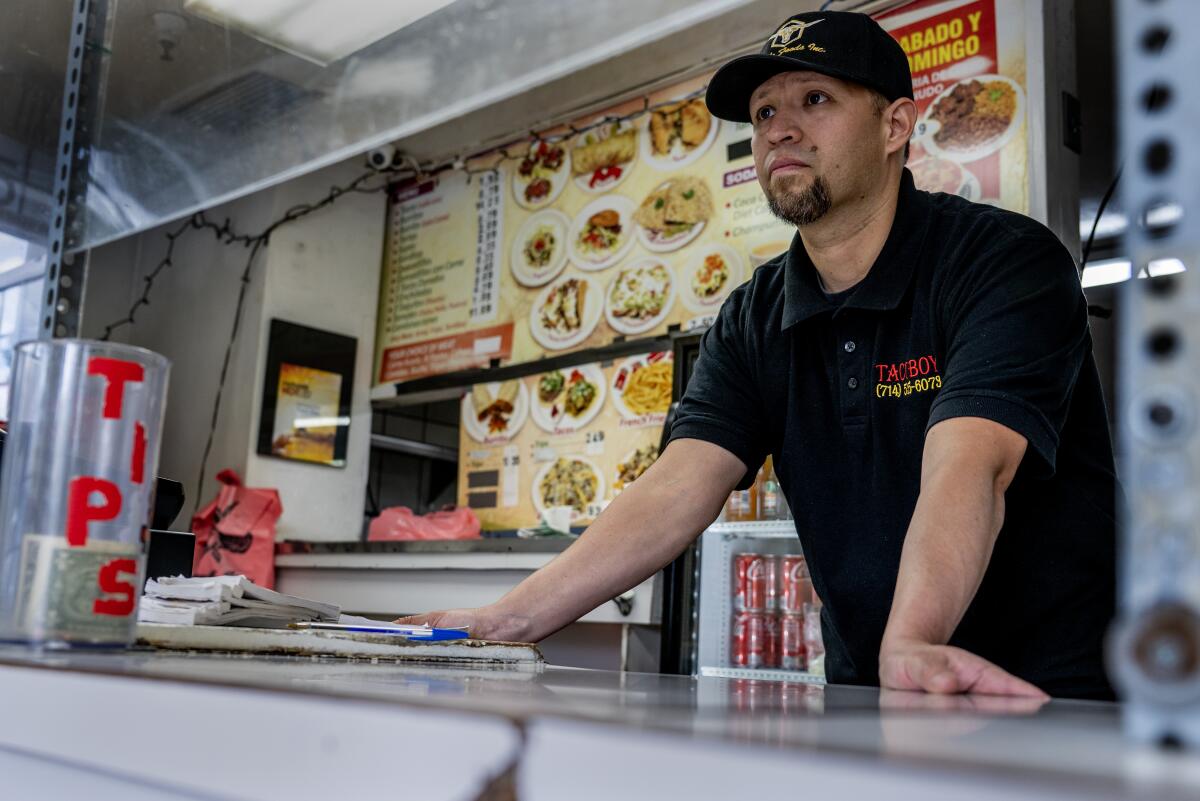
“But they’re not going to have a police car circle around here,” he said. “Because these burglaries aren’t just happening around here.”
“I don’t want to blame the pandemic, but it changed a lot of people’s minds,” his son said. “Kids didn’t go to school and are now out on the streets. Things seemed to be going up for a bit [after lockdowns were lifted], but a lot of things have gone backwards.”
Father and son are matter-of-fact men who tried not to show much emotion during our talk. But weariness underlined their voices as they described what’s next. Taco Boy has two huge windows that offer a panoramic view of Anaheim Boulevard. After 35 years, the Solises are finally going to install iron bars on them.
“It’s going to change the aesthetic, but oh well,” Samuel Sr. said. “If we try to keep it nice like how it is, [the break-ins are] going to continue. ”
“Things aren’t going to change, but we have to adapt,” Samuel Jr. said. He stayed quiet. “It’s painful. We’ve been conducting business forever. To have people mistreat us this way …”
The two Samuels bid me farewell. Cleavers thumped in the background as I got up to put in my usual order: an al pastor burrito and an horchata. Taco Boy’s lunch rush never came. When I left, I noticed the sliding iron gate at the bar next door was covered in graffiti.
Restaurants like Taco Boy are the canary in the coal mine of local economies. They’re where we go to relax and commiserate and eat. When the people who run them are under siege, so are the rest of us.
More to Read
Sign up for Essential California
The most important California stories and recommendations in your inbox every morning.
You may occasionally receive promotional content from the Los Angeles Times.
